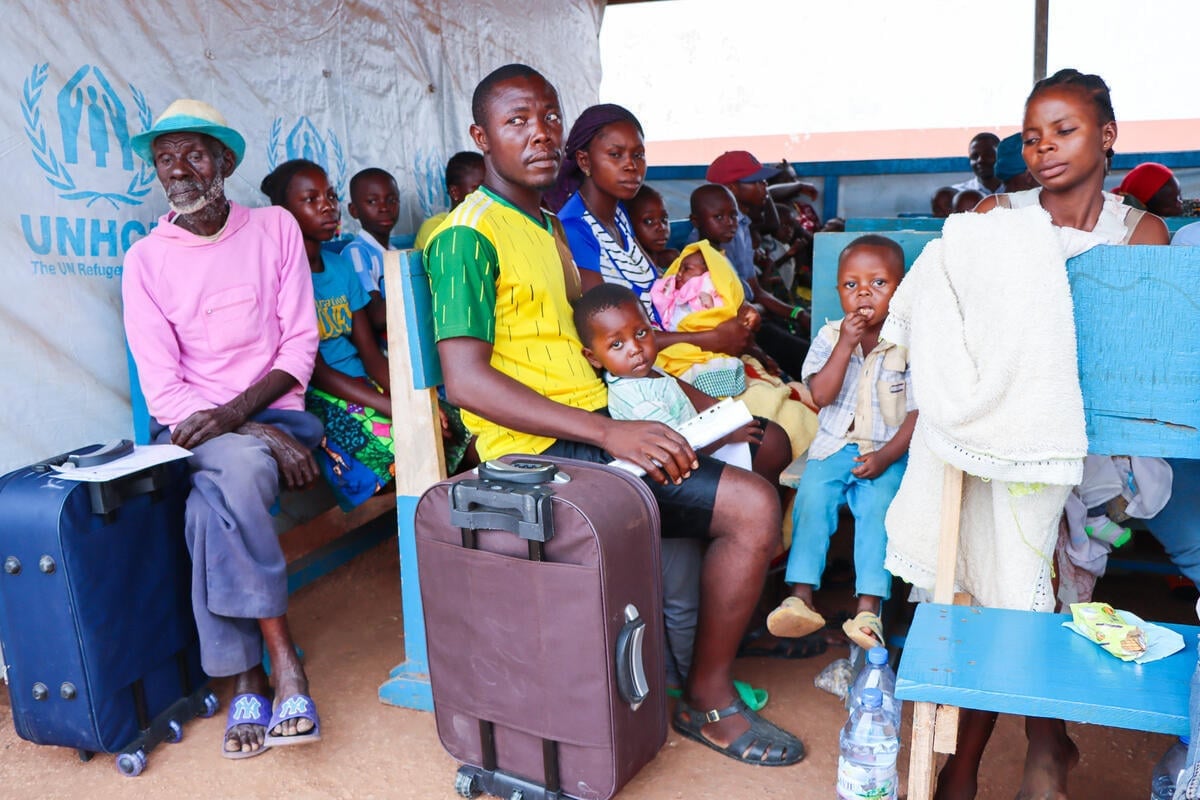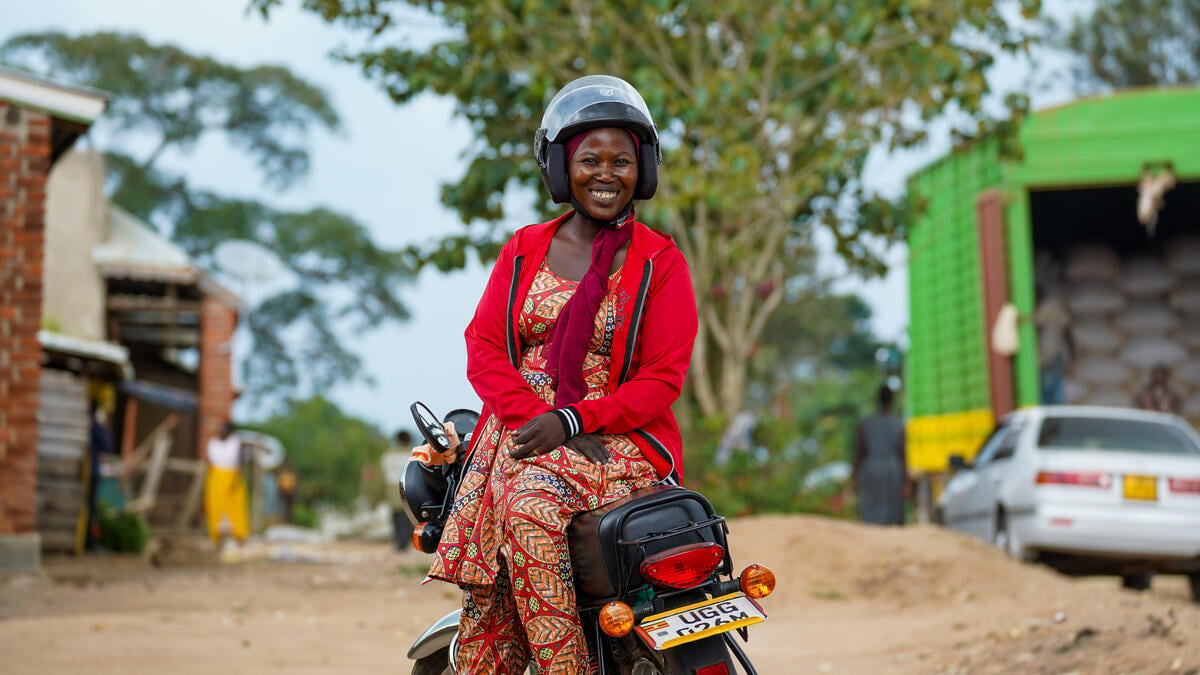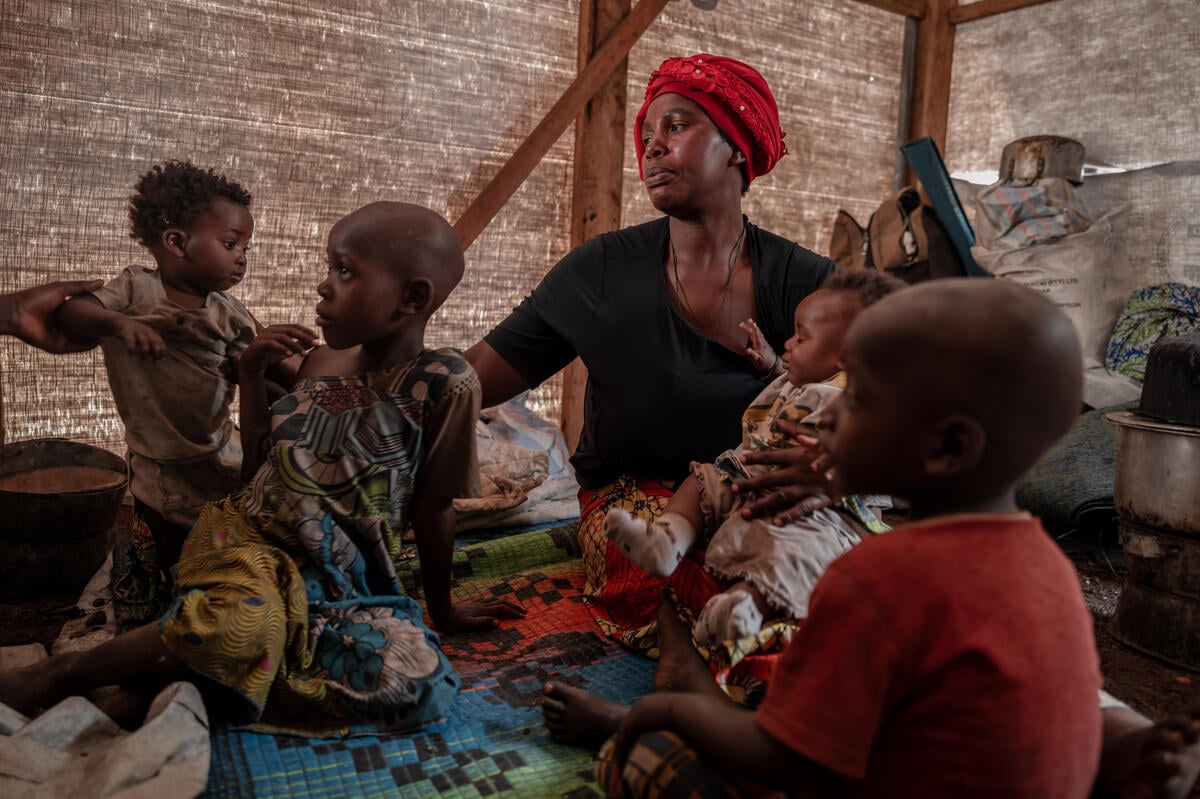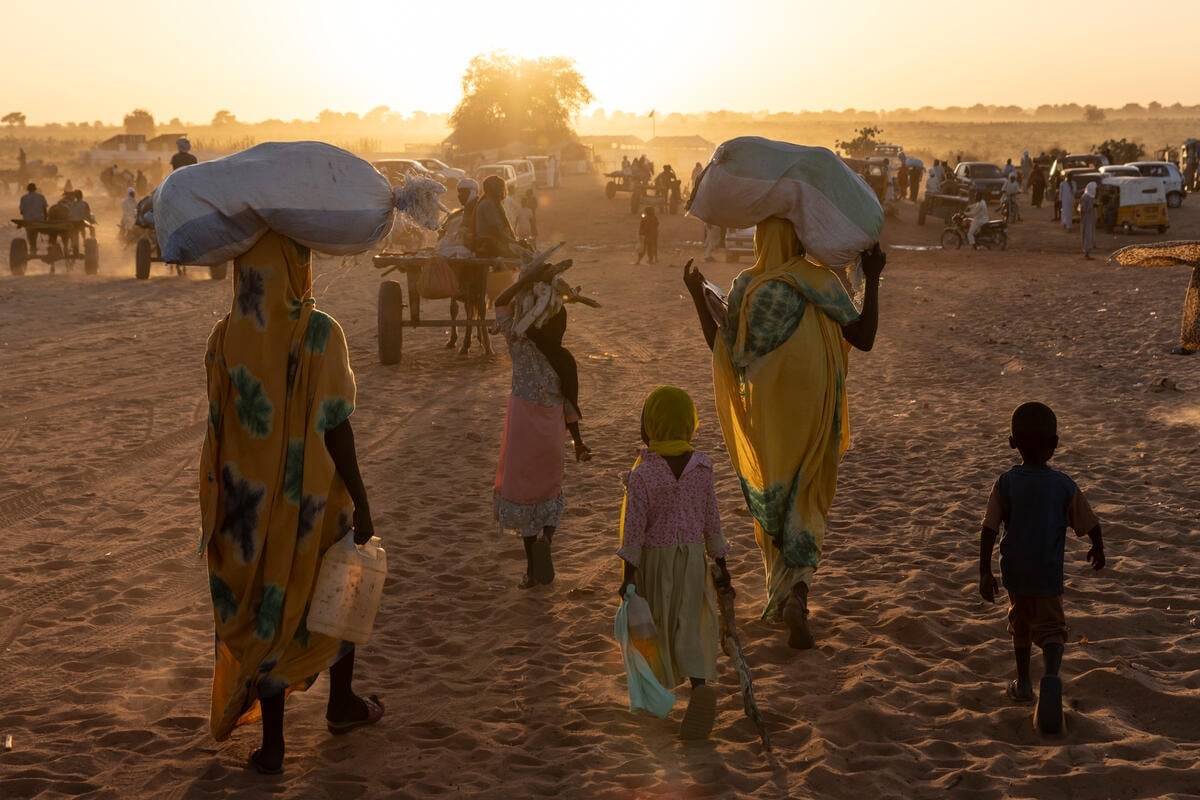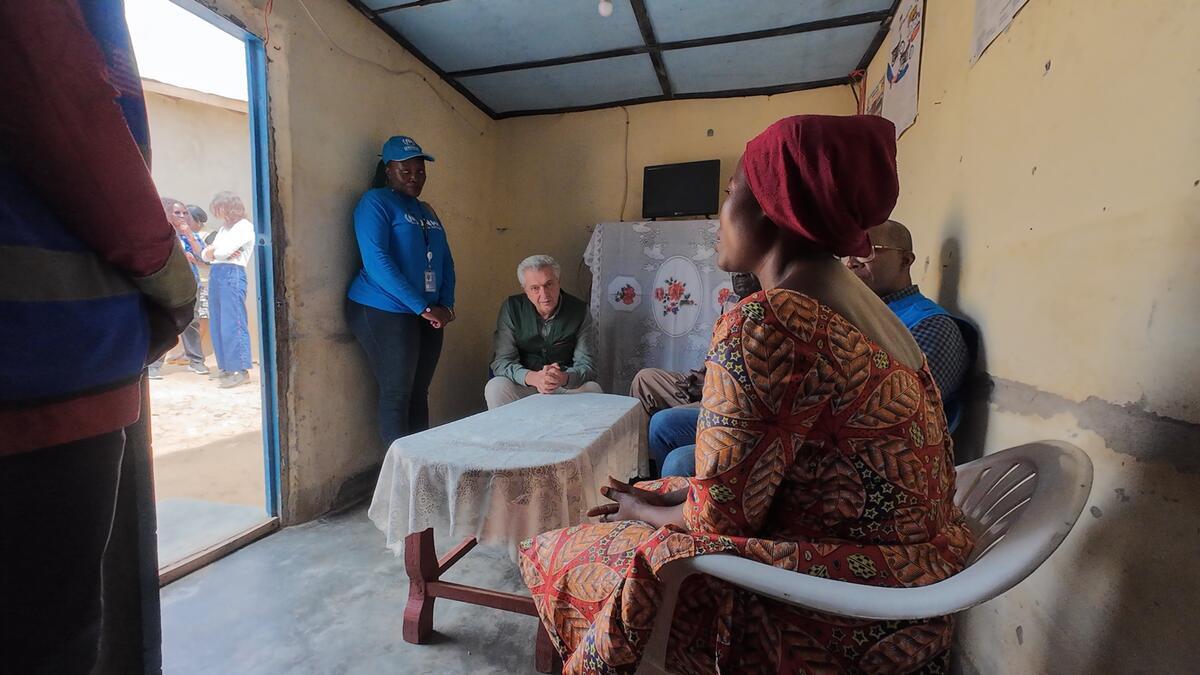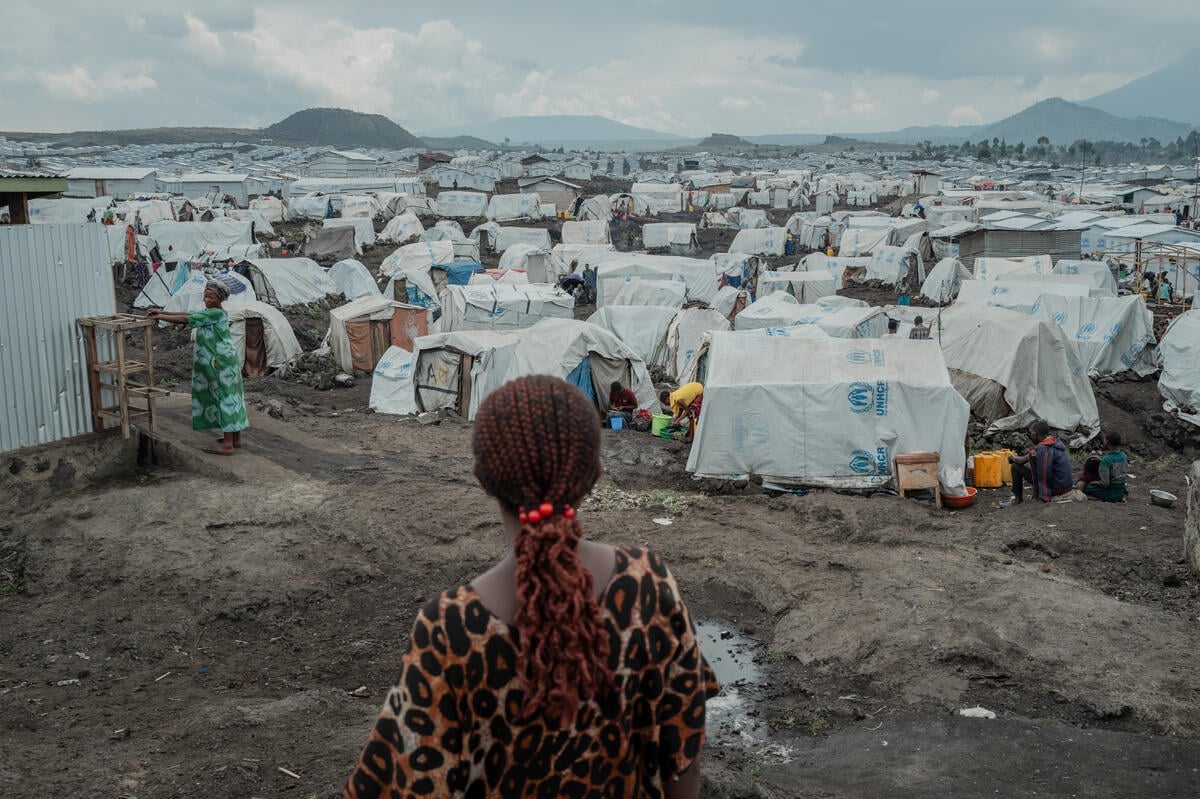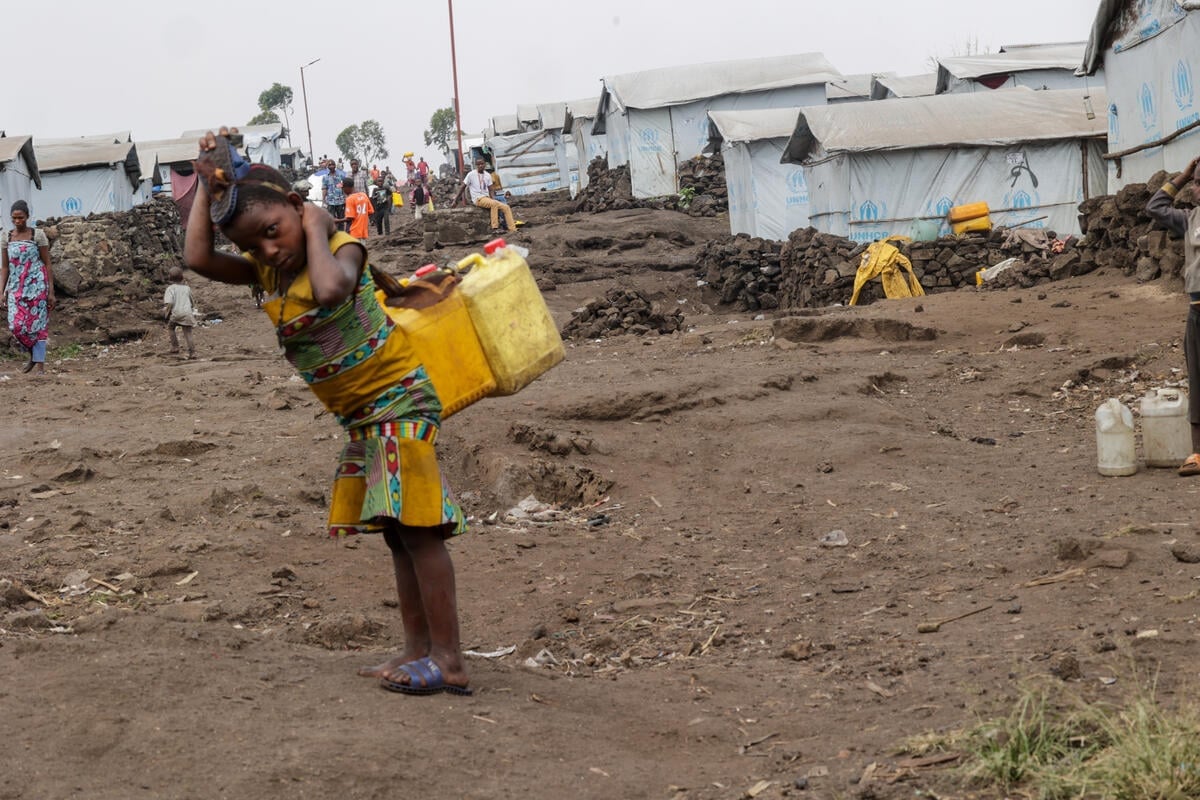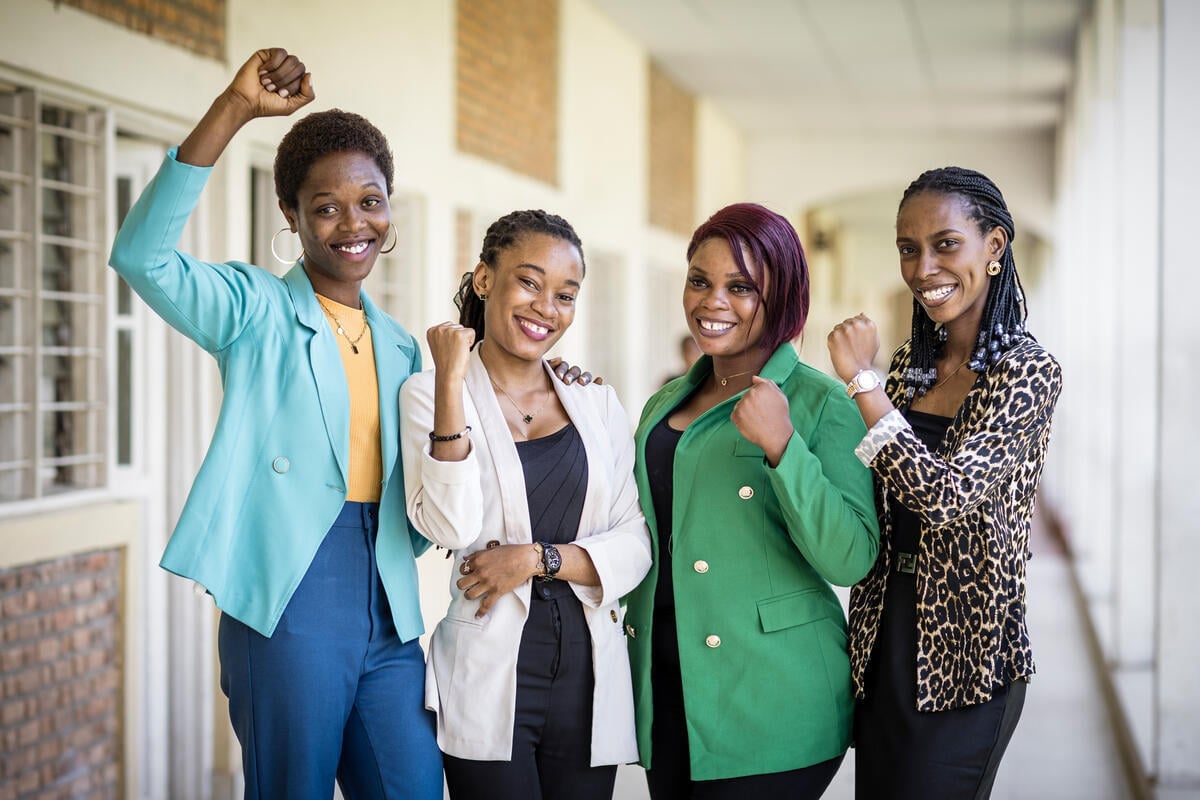UNHCR Fears for Welfare of Border-Bound Congolese Refugees
UNHCR Fears for Welfare of Border-Bound Congolese Refugees
With a new emergency underway in the North Kivu region of the Democratic Republic of the Congo, UNHCR and its partners have been rushing to help the tens of thousands of refugees who have fled the violence into western Uganda's Bundibugyo district. The refugees, who began arriving last Thursday, are spread out along the hilly border area, where conditions are tough and getting help to them is difficult.
As of Sunday night, the Uganda Red Cross, had manually registered more than 66,000 people - refugees who had fled across the border after the Allied Democratic Forces (ADF), a Ugandan rebel group, captured the North Kivu town of Kamango.
Together with our partners, we have completed joint assessment missions and begun moving emergency food and non-food aid to the area. The refugees are living in any space available, including schools, with host families and even in gardens.
A transit centre is now open some 20 kilometres from the border in Bubukwanga sub-county. Some 2,000 people have been transported there since Saturday, but many refugees are reluctant to move from the hilly border region, where there has been cross-border toing and froing during daylight hours as people return to their nearby towns or villages to get food and check on their crops at harvest time.
At the same time, and although the Congolese government is encouraging people to come back, refugees are not willing to return immediately to their homes because of the continuing dangerous situation in this region of North Kivu. While Kamango is quiet and emptied, we have received reports of clashes in three other areas, including an ADF ambush of a UN peace-keeping vehicle, which was repelled by a helicopter gunship on Friday. The situation remains very fluid.
Moving the refugees to safer areas is now a main challenge. We are worried about their current situation, as the conditions that many are living in are dire. People are dotted across a hilly area where it is very cold at night and where it is difficult to find drinking water and food. Sanitation and hygiene facilities are almost non-existent. We believe that the longer they stay at the border, the more likely there will be outbreaks of disease.
That's why we are trying to persuade the refugees that if they wish to receive protection, shelter and assistance they should come to the transit centre, which can hold 10,000 people and another 10,000 once additional neighbouring land becomes accessible. It will also enable UNHCR and the government of Uganda to do a more thorough registration of the refugees and identify those most in need of protection and assistance.
We are talking to community leaders to encourage the refugees to move and some families have started moving vulnerable family members to the transit centre. Meanwhile, we plan to send technical staff with site planning and water, sanitation and hygiene expertise to Bundibugyo as part of the emergency response.
Separately, we are also concerned about the situation further south in North Kivu and close to the provincial capital of Goma, where fighting between government forces and the M23 movement has broken out after a two-month lull.
The fighting here is also causing displacement, including preventive displacement. With a deteriorating situation in Masisi - to the northwest of Goma - a steady stream of about 600 people a week has been crossing into Uganda's Kisoro district. More skirmishes are likely and we fear that they could trigger a bigger exodus.
For the latest refugee arrivals, UNHCR has sent plastic sheeting for shelter construction, plates and cups, and temporary latrine kits as well as soap. We have also provided fuel for transfers to the transit centre. On Monday, we sent an additional emergency shipment of tents, plastic rolls, blankets, sleeping mats and fuel. Other items such as larger tents for office use as well as plastic tables and chairs are also being arranged.
Our partner, World Food Programme, has delivered enough food to feed 20,000 people for five days, with more food due to arrive on Thursday. The Ugandan Red Cross has organized communities to cook and serve hot meals, while the UN Children's Fund (UNICEF) and other partners are providing water.
Even before the arrival of the newest refugees, Uganda was already home to more than 210,000 registered refugees and asylum seekers, more than 60 per cent of whom came from the DRC.
For further information on this topic, please contact:
In Uganda on mission, Kitty McKinsey (Regional) on mobile +254 735 337 608
In Kampala: Karen Ringuette on mobile +256 772 701115
In Geneva: Adrian Edwards on mobile +41 79 557 9120


